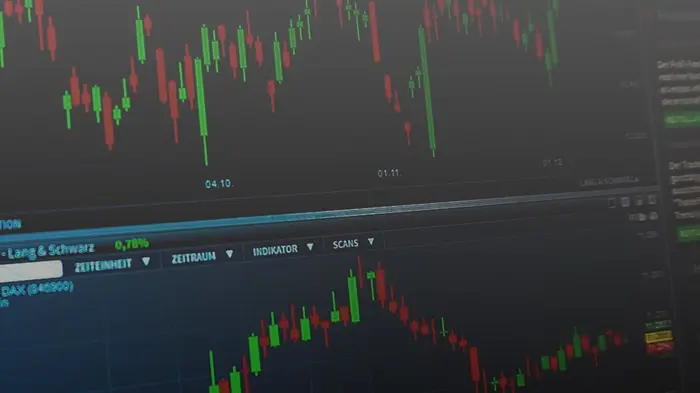Residential real estate stocks continued to fall on Monday as President Trump continues to promise wide-ranging tariffs.
Compass and brokerage holding company Anywhere Real Estate both opened about 2% lower, while Douglas Elliman fell 4.8% and Re/Max fell more than 5%.
Redfin, which has agreed to sell to Rocket Companies for $1.75 billion, fell further, falling 4.2%. Zillow, meanwhile, fell more than 3%.
Rocket Companies, the only company in the sector to avoid a sell-off last week, also fell 5% today.
The real estate sector mostly underperformed the market, with the S&P 500 down just 0.2% and the Nasdaq Composite flat.
Last week, Trump announced 10% tariffs on most U.S. trading partners, with tariffs on Chinese goods as high as more than 50%. China responded last Friday by imposing a 34% tariff on all U.S. goods entering its borders, and Trump has hinted that he may raise tariffs on China further in response.
It’s an untimely shock to a real estate industry that many expected to be on solid footing until 2025. First-quarter residential sales in Manhattan were 29% higher than a year earlier as consumers appear to have adjusted to persistently high mortgage rates. Other markets saw similarly strong first-quarter results, with South Florida seeing a surge in sales in January.
As a result, residential brokerages are poised for a stellar year, or even better. Compass, for example, raised its full-year outlook in January, and Anywhere expects operating EBITDA to be $60 million higher in 2025 than in 2024.
Tariffs could throw all that out the window.
Rising costs are starting to take their toll
The immediate impact of tariffs is already being felt in the slump in supply.
Developers that previously stayed quiet due to a tough financing environment have already begun planning to bring inventory online in the coming years. Some developers are now rethinking their plans.
Andrew McCarthy, a luxury developer in Michigan, said he has received a change order to increase the cost of an elevator in a two-unit boutique condo by 14 percent. The elevator came from Canada.
He is currently in talks with the Christie’s International Real Estate team that is marketing the building to determine price points for the May 1 sale.
“You have to ask yourself, do we have a market, are we competitive,” he said.
Developers who have been looking for new projects are also recalculating the feasibility of those projects. Home builders have already been dealing with rising labor costs after the Trump administration cracked down on immigration.
“How do the heads of home builders plan their year, how do they anticipate and plan for this environment?” said Jonathan Miller, CEO of Miller Samuel. “They’re probably going to hold back on expansion and any idea of increased activity.”
Miller also noted that existing homeowners may be reluctant to sell their homes during times of economic uncertainty, even if interest rates are low.
The possibility of fewer homes on the market will further squeeze listed residential brokerages that are already struggling to make a profit.
“Persistent low inventory levels have had and may continue to have a material adverse effect on our business, financial condition and results of operations,” Compass wrote in its 2024 annual report.
Declining demand
On the demand side, fears of a recession are growing.
JPMorgan Chase raised its odds of a recession this year to 60%. Michael Feroli, the bank’s chief U.S. economist, said in a note to clients that he expects the unemployment rate to gradually converge toward 5.3%.
While some analysts point to already falling mortgage rates as a possible silver lining, others remain skeptical.
“Lower rates are good for housing,” Miller said. “But if a lot of consumers — potential homebuyers — lose their jobs, then they’re no longer homebuyers.”
Mortgage rates initially fell last week on expectations that the Federal Reserve might cut rates to stave off job losses, but Fed Chairman Jerome Powell said he was more concerned about inflation risks from tariffs.
“The mortgage-backed securities markets are basically giving us no indication that they’re going to plummet from here,” said Melissa Cohn, regional vice president at William Raveis Mortgage.
Falling asset values are also making it harder for would-be buyers to purchase homes, Cohn said.
“It’s hard to buy a new house, new furniture, when your stock portfolio has lost 20% of its value,” she said.
‘Peak Uncertainty’
It’s no secret that one factor can dampen real estate activity: uncertainty.
Any change — a rollback in tariffs or a change in the Fed’s stance on interest rates — causes the calculus of buyers and sellers to shift again. Both sides are inclined to pause until there’s more clarity.
“We’re at peak uncertainty. When people don’t know what’s going on, they pause,” Miller said.
Stephens analyst John Campbell, however, remains bullish on the sector, noting that he still expects lower interest rates, which could spur deals — even at lower prices.
“I think a lot of people in the market would like to see lower home prices and lower interest rates to increase affordability and get more people out of the market,” he said.
But as Cohen pointed out, many predictions made today could be completely wrong tomorrow.
“What you read yesterday may not make sense today or an hour from now,” she said.
Related topics:


























